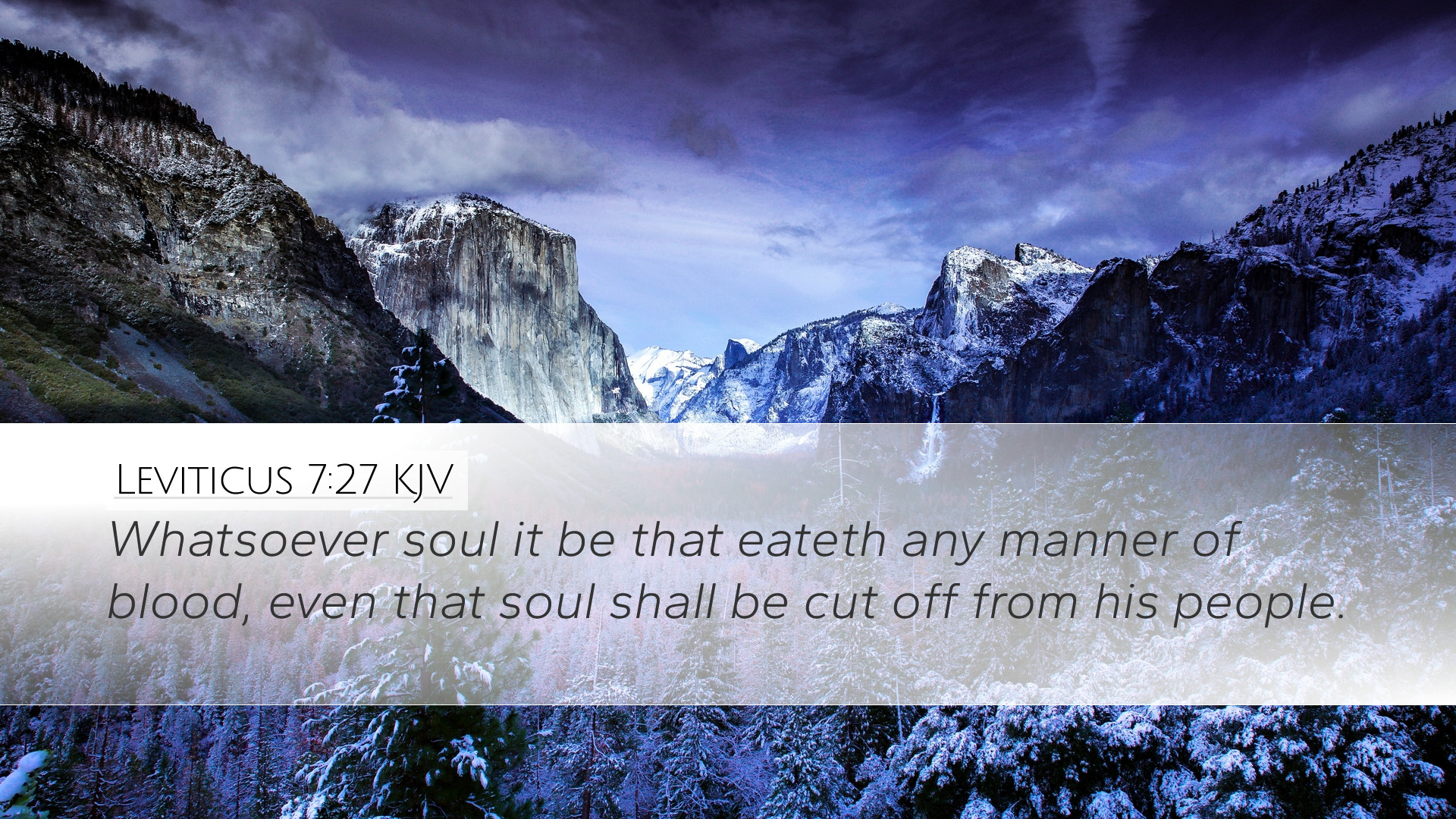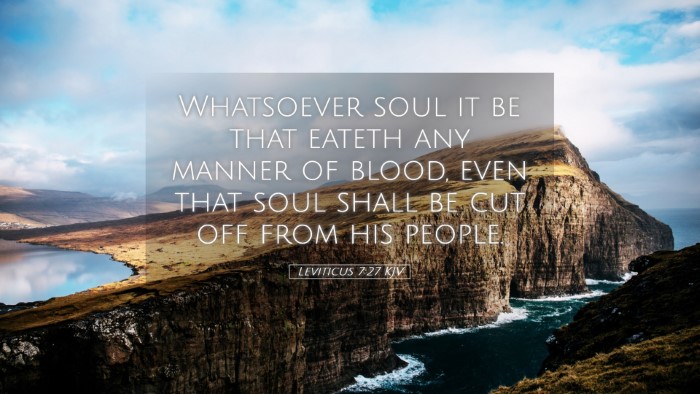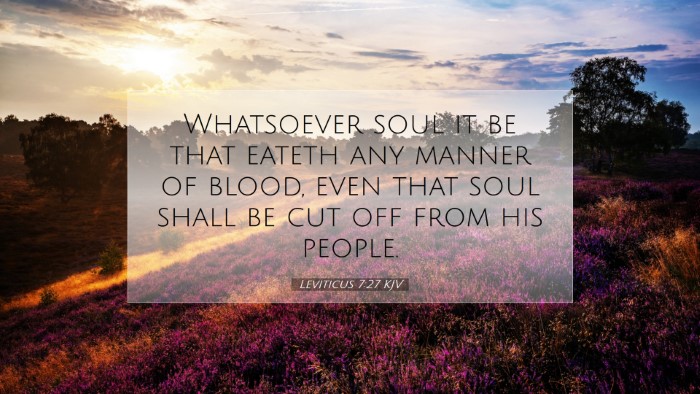Commentary on Leviticus 7:27
Bible Verse: Leviticus 7:27 - "You shall not eat any blood; you shall pour it out on the earth like water."
Introduction
Leviticus chapter 7 encompasses the laws of various offerings and sacrifices.
Among these directives, the prohibition against consuming blood notably stands out.
This commentary synthesizes insights from esteemed public domain sources to explore the theological implications and pastoral applications of Leviticus 7:27.
Theological Significance of Blood
Blood has profound significance in the Scriptures, representing both life and the means of atonement.
Albert Barnes asserts that the prohibition against consuming blood establishes its sanctity, indicating that it belongs to God alone as the giver of life.
The act of pouring out blood as prescribed emphasizes its role as an offering and serves to remind the Israelite community of God's covenant relationship with them.
Adam Clarke adds that the prohibition maintains a clear distinction between the sacredness of the animal sacrifices and the common practices of surrounding nations.
This preservation of divine order and holiness invites believers to recognize blood as a critical element of atonement and reconciliation.
Historical Context
Matthew Henry discusses the historical backdrop of this directive, noting how ancient cultures often engaged in sacrificial rites involving blood consumption.
By forbidding blood, God establishes a countercultural stance, emphasizing purity and holiness in worship.
The Israelites were to be set apart, not merely as a ritual exercise but as a life-altering identity.
Implications of the Commandment
- Obedience to God's Commands: The Israelites are called to adhere strictly to God's directives.
Matthew Henry highlights that obedience in such ritualistic aspects reflects a heart aligned with God's will.
- The Atonement Concept: Blood was central to atonement practices.
Barnes emphasizes that understanding the sacred role of blood deepens the understanding of Christ's sacrificial death and its implications for believers.
- The Symbolism of Life: The command highlights the intrinsic link between blood and life.
Clarke notes that consuming blood violates the sanctity of life that God has ordained, thus preserving the sacred nature of existence.
Pastoral Applications
For pastors and church leaders, this command serves as a lens through which to view modern spiritual practices.
Emphasizing the sanctity of life in teaching encourages congregations to respect God-given life in all its forms.
Furthermore, the significance of the blood in the New Covenant allows for rich theological exploration in preaching, connecting the Old Testament commandments with Christ's ultimate sacrifice.
Additionally, this verse invites reflection on the nature of worship.
As blood was to be poured out as a means of expressing devotion and recognition of God's holiness, contemporary worship must also prioritize reverence and understanding of God's nature.
Conclusion
Leviticus 7:27, while situated within ancient Israelite law, resonates deeply with contemporary faith practices.
The insights derived from Matthew Henry, Albert Barnes, and Adam Clarke urge modern believers to reexamine their understanding of blood's sacredness and its implications for worship, community, and personal faith.
As such, this verse serves not merely as a historical note but as a live invitation to engage more deeply with the heart of God in the matter of life, atonement, and divine holiness.


